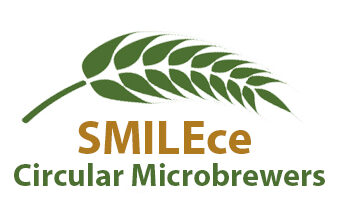As part of the Europe 2020 strategy, the European Commission is committed to addressing environmental challenges and transitioning towards a more sustainable economic system. One key concept gaining momentum among decision-makers and businesses is the circular economy. The circular economy aims to ensure the reuse of resources by designing products to be remade, thereby tackling urgent issues such as resource depletion, pollution, inequality, and climate change. In line with this vision, the SMILECE project has been initiated to promote circular economy principles and activities within the Beer Brewing sector across the entire European Union region.
The primary objective of the SMILECE project is to target the dynamic Craft Beer and independent Brewery industry in Europe, building upon the achievements of the previous SMILE* project. SMILECE aims to provide incumbents and new entrants in the sector with exposure to the techniques, culture, and ideas derived from the circular economy. This perspective is increasingly recognized in European policymaking as a positive and solution-oriented approach to achieving economic development while considering environmental constraints. The project’s main outcome will be the SMILEce platform, which, along with learning objects, additional resources, and a pedagogical model, will address both EU and national priorities and meet the sector’s identified needs.
The implementation of the SMILEce project involves several key activities, including:
– Identifying specific processes and services within the craft brewing value chain that align with circular economy principles.
– Certifying competences for circular brewing through the development of learning objects within the project.
– Enhancing and updating work-based learning methodologies to support circular economy practices in the brewing industry.
The project is expected to create positive outcomes and impact the brewing landscape in various ways, such as:
– Strengthening the business skills of micro-brewers to sustain their enterprises, generate employment opportunities, and effectively compete against global multinational beer producers.
– Training brewers to develop leadership qualities and a sense of responsibility towards sustainability and the circular economy.
– Deepening understanding of the crucial link between brewing, agriculture, and the natural environment.
– Supporting knowledge creation and exchange in brewing, malting, and fermentation science within the framework of the European Green Deal’s environmental constraints.
– Enhancing the competences and competitiveness of the European micro-brewing sector and promoting the positive contribution European beer can make to a sustainable economy.
– Encouraging the continuous improvement and dissemination of best practices and sustainable techniques within the brewing sector.
– Contributing to the EU’s goals of promoting sustainable consumption and production.
Through the SMILECE project, strides are being made to foster a circular economy mindset within the beer brewing industry, paving the way for a more sustainable and environmentally conscious future in Europe.
-
Results:






